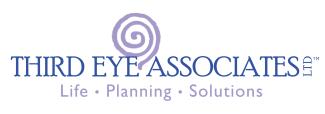Virtual Afterlife: What Happens to Your Online Presence When You Die?
June 5, 2014
By Beth Jones, RLP®, AIF®, CFT™
Have you considered what will happen to your Facebook, Twitter, and LinkedIn accounts when you pass away? Preparing a “digital estate plan” in advance can help ensure that your personal information remains safe and your wishes for your online persona are carried out.
This article outlines how to secure your online presence on each of the major social networking sites—Facebook, Twitter, and LinkedIn—as well as on blogs. Although no one likes to think about death, collecting the necessary information ahead of time and sharing your wishes with a trusted individual can save your friends and family stress and confusion down the road.
Via the Facebook website, friends and family members can report the death of an account holder. They can either request to have the account “memorialized” or removed entirely.
- Memorializing an account: This option allows the profile to be viewed by those whom the account holder had confirmed as “friends.” Friends may post on the deceased’s wall, but no one can log into the account once it has been memorialized.
- Removing an account: Only immediate family members of the deceased may request the complete removal of a Facebook account.
Both options require proof of death, which can take the form of an obituary or news article. Other information that may expedite the process includes:
- Full name on the account
- E-mail address that was used to create the account
- Networks associated with the account
- URL of the profile
- Account holder’s date of birth
For more information, visit Facebook’s Help Center at www.facebook.com/help and type “deceased user” into the search box.
Upon the passing of a Twitter user, the account can be deleted by notifying Twitter of the death. To remove a Twitter account, the following is required:
- The deceased’s username, or a link to the account profile page
- Link to the obituary or news article regarding the death This information can be e-mailed to privacy@twitter.com or faxed to 415.222.9958. It can also be sent via mail to:
Twitter Inc.
c/o Trust & Safety
795 Folsom Street, Suite 600
San Francisco, CA 94107
For more details, go to the Twitter Help Center at http://support.twitter.com and type “deceased user” into the search box.
To report the passing of a LinkedIn member, the site’s Verification of Death Form must be completed and submitted. The form requires the following information:
- Account holder’s e-mail address
- URL of LinkedIn profile
- Date of death
- Death notice
The Verification of Death Form can be submitted through the LinkedIn website or faxed to 402.715.4536. For more information, including instructions for downloading and submitting the form, visit the LinkedIn Help Center at http://help.linkedin.com and type “Verification of Death Form” into the search box.
Free blog accounts
The various free blog services have different processes for dealing with deceased account holders. If you use a blog service, check its policies for removing accounts and collect any necessary information (typically, the blog’s URL and the URL to the login page, along with your username and password).
Selecting the executor of your virtual estate
To secure your social media presence after you die, it’s a good idea to leave the information for each account with someone you trust, such as a close friend or family member. Or, you may wish to have your financial professional or attorney oversee your accounts. Whomever you choose should be aware of the specific requirements for each site and your wishes.
Of course, deciding what will happen to your online presence is just a small piece of an overall estate plan. If you haven’t yet considered a will and other end-of-life preparations, your financial advisor can help you make a comprehensive plan to ensure that everything is taken care of for your loved ones. If you have a will, be sure to review it periodically to see that it is up-todate with the current estate laws. Don’t assume that you do not need a will–it is always better to have a plan and know your wishes will be followed.
Third Eye Associates, Ltd disclaimer
This article is provided for general informational purposes only and should not be construed as investment advice. Always consult a qualified Financial Consultant or Planner who can guide you in creating a globally diversified portfolio that provides growth and income with an eye on managing volatility.
Beth Jones, RLP®, AIF®, CFT™ is a Certified Financial Transitionist™, Registered Life Planner, and Financial Consultant with Third Eye Associates, Ltd, a fee-only Registered Investment Adviser located at 38 Spring Lake Road in Red Hook, NY. She can be reached at 845-752-2216 or www.thirdeyeassociates.com.

